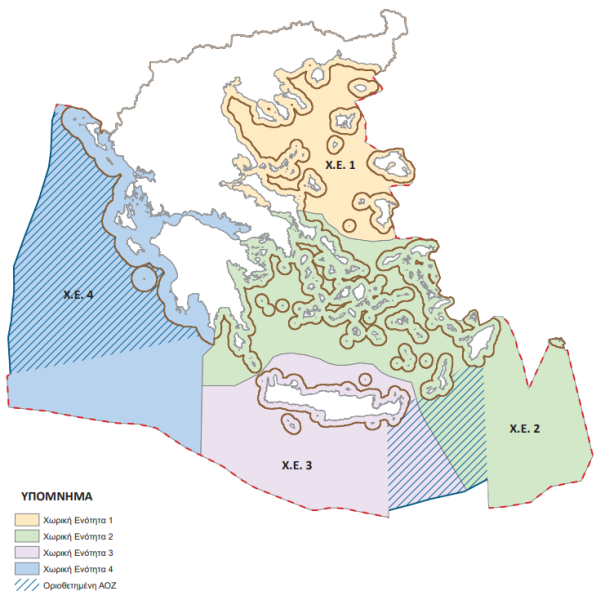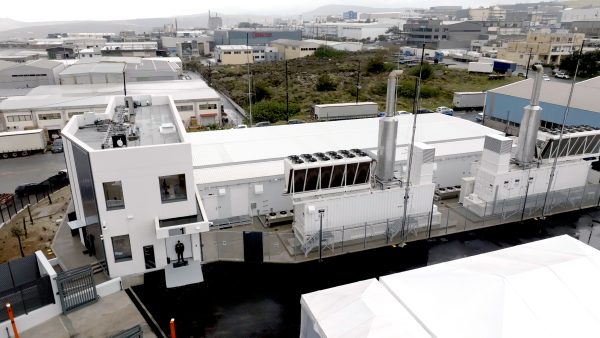
The ground for the development of intelligent solutions around the Internet of Things is paving the way for the Ministry of Digital Governance.
The Greek State is dynamically entering the era of smart cities with the development of the iot.gov.gr platform, but also with a network-guide of 135 sensor stations for the monitoring of environmental indicators. Air quality, meteorological conditions, road traffic, energy consumption can be improved through innovative solutions, as a “smart” eye will monitor the critical infrastructure of the country in real time.
The spearhead for the “smart” cities, in which it seems that by 2050 almost 70% of the world’s population will live, is innovation, automated systems, Artificial Intelligence.
The interconnected world is already here. Homes, electricity, water, heating, appliances are becoming smarter thanks to the Internet of Things. By 2030, interconnected devices are expected to jump to 200 billion from 30 billion in 2020.
The new platform, which will run through gov.gr, will offer the necessary infrastructure for the development of IoT applications, which will contribute to the improvement of everyday life, the protection of the environment and the well-being of citizens.
The competition
The competition, which aired yesterday, concerns the project “Integrated system of horizontal platform of Internet of Things (iot.gov.gr) and network of sensors”, with a budgeted cost of 3.72 million euros including VAT. The Ministry of Digital Government undertakes to create a central Internet of Things framework, as well as a corresponding business platform using innovative technologies and parallel installation of the necessary equipment to ensure its interoperability.
The object of the contract is the creation of a central, horizontal Internet of Things platform, which will provide the necessary basic infrastructure for stakeholders to develop different solutions around the Internet of Things. These solutions include:
A. Measurement of critical indicators of prosperity, such as environmental indicators, radiation, energy consumption, etc.
B. Monitoring of critical state infrastructure and
C. Smart Cities
The platform
Through the platform, the required security will be provided, as well as the necessary supplies for the design and implementation of such systems by the competent bodies. This will allow implementations, with different and heterogeneous technologies, architectural solutions and providers. Thus, economies of scale and synergies will be achieved, in order to maximize the benefits of the citizens from the implementation of IoT solutions.
At the same time, the development of solutions that will offer domestic added value will be supported, through the utilization of a single, central platform with open standards and increased cybersecurity, which will provide access to a large number of users and will accelerate the testing and commissioning time of IoT applications. The target model for the implementation of the iot.gov.gr platform is the government computing cloud, the so-called G-Cloud, which supports critical functions of public administration.
The IoT platform will support at least 500 IoT devices in the initial installation, while there will be the possibility of future expansion for additional devices or subsystems. It will integrate data and functions of individual “smart” applications and provide services to citizens, businesses and central administration.
It will collect data from sensors, interconnected devices, management systems, which are installed in utility networks, roads, streetlights, traffic lights, public buildings, etc. It will then convert them to a format suitable for further use, so that application development specialists can use them to constantly develop new services.
The platform will be put into pilot operation for a period of two months. Operating body will be the General Secretariat of Telecommunications and Posts.
Development of 135 sensor stations
In addition, as part of the project, a network of sensors will be developed to measure environmental indicators to monitor air quality, meteorological conditions, electromagnetic radiation and river flow rate and velocity. A total of 135 sensor stations will be installed. The monitoring and management of these stations will be done through a suitable application, which will work in the cloud and will utilize the possibilities offered by InternetofThings and Artificial Intelligence.
The measurements should be presented in a user-friendly way while the application will automatically calculate indicators, such as the Air Quality Index, predict the levels of measurements and send alerts to those interested in cases of fluctuations outside the desired limits. This will be an application of an integrated solution (end to end) and will be the pilot for the implementation of other similar projects nationwide.
The contract is funded by the Public Investment Program. The bids will be submitted until Wednesday, June 29, 2022, at 17.00.
Latest News

Greek €200M 10Y Bond to be Issued on April 16
The 3.875% fixed-interest-rate bond matures on March 12, 2029, and will be issued in dematerialized form. According to PDMA, the goal of the re-issuance is to meet investor demand and to enhance liquidity in the secondary bond market.

German Ambassador to Greece Talks Ukraine, Rise of Far Right & Tariffs at Delphi Economic Forum X
Commenting on the political developments in his country, the German Ambassador stressed that it was clear the rapid formation of a new government was imperative, as the expectations across Europe showed.

Athens to Return Confiscated License Plates Ahead of Easter Holiday
Cases involving court orders will also be excluded from this measure.

Servicers: How More Properties Could Enter the Greek Market
Buying or renting a home is out of reach for many in Greece. Servicers propose faster processes and incentives to boost property supply and ease the housing crisis.

Greek Easter 2025: Price Hikes on Lamb, Eggs & Sweets
According to the Greek Consumers’ Institute, hosting an Easter dinner for eight now costs approximately €361.95 — an increase of €11 compared to 2024.

FM Gerapetritis Calls for Unified EU Response to Global Crises at EU Council
"Europe is navigating through unprecedented crises — wars, humanitarian disasters, climate emergencies," he stated.

Holy Week Store Hours in Greece
Retail stores across Greece are now operating on extended holiday hours for Holy Week, following their Sunday opening on April 13. The move aims to accommodate consumers ahead of Easter, but merchants remain cautious amid sluggish market activity.

Green Getaway Ideas for Easter 2025 in Greece
Celebrate Easter 2025 in Greece the sustainable way with eco-farms, car-free islands, and family-friendly getaways rooted in nature and tradition.

Civil Protection Minister Details Summer Firefighting Plans at Delphi Forum
At the 10th Delphi Economic Forum, Minister of Climate Crisis and Civil Protection Yiannis Kefalogiannis discussed Greece's plans for the upcoming fire season.

How Shops and Markets Will Operate During Easter Holy Week
The Easter holiday schedule has been in effect since April 10, with retail stores open Palm Sunday, and most supermarkets also operating to meet consumer demand for Easter shopping









































 Αριθμός Πιστοποίησης
Αριθμός Πιστοποίησης